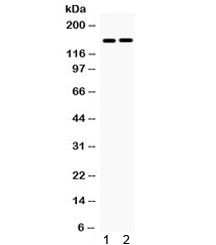Cookie-Einstellungen
Diese Website benutzt Cookies, die für den technischen Betrieb der Website erforderlich sind und stets gesetzt werden. Andere Cookies, die den Komfort bei Benutzung dieser Website erhöhen, der Direktwerbung dienen oder die Interaktion mit anderen Websites und sozialen Netzwerken vereinfachen sollen, werden nur mit Ihrer Zustimmung gesetzt.
Konfiguration
Technisch erforderlich
Diese Cookies sind für die Grundfunktionen des Shops notwendig.
"Alle Cookies ablehnen" Cookie
"Alle Cookies annehmen" Cookie
Ausgewählter Shop
CSRF-Token
Cookie-Einstellungen
FACT-Finder Tracking
Individuelle Preise
Kundenspezifisches Caching
Session
Währungswechsel
Komfortfunktionen
Diese Cookies werden genutzt um das Einkaufserlebnis noch ansprechender zu gestalten, beispielsweise für die Wiedererkennung des Besuchers.
Facebook-Seite in der rechten Blog - Sidebar anzeigen
Merkzettel
Statistik & Tracking
Endgeräteerkennung
Kauf- und Surfverhalten mit Google Tag Manager
Partnerprogramm

| Artikelnummer | Größe | Datenblatt | Manual | SDB | Lieferzeit | Menge | Preis |
|---|---|---|---|---|---|---|---|
| NSJ-R32342 | 100 µg | - | - |
3 - 10 Werktage* |
772,00 €
|
Bei Fragen nutzen Sie gerne unser Kontaktformular.
Bestellen Sie auch per E-Mail: info@biomol.com
Größere Menge gewünscht? Bulk-Anfrage
Bestellen Sie auch per E-Mail: info@biomol.com
Größere Menge gewünscht? Bulk-Anfrage
0.5mg/ml if reconstituted with 0.2ml sterile DI water. HDAC6, also called KIAA0901, is a member... mehr
Produktinformationen "Anti-HDAC6"
0.5mg/ml if reconstituted with 0.2ml sterile DI water. HDAC6, also called KIAA0901, is a member belongs to class II of the histone deacetylase/acuc/apha family of proteins that is an enzyme that in humans is encoded by the HDAC6 gene. The HDAC6 gene is mapped to chromosome Xp11.23. HDAC6 contains an internal duplication of two catalytic domains which appear to function independently of each other. The protein possesses histone deacetylase activity and represses transcription. HDAC6 functions as a tubulin deacetylase. And it is localized exclusively in the cytoplasm, where it associates with microtubules and localizes with the microtubule motor complex. HDAC6 could bind both polyubiquitinated misfolded proteins and dynein motors, thereby recruiting misfolded protein cargo to dynein motors for transport to aggresomes. Furthermore, expression of HDAC6 was sufficient to rescue degeneration associated with UPS dysfunction in vivo in an autophagy-dependent manner. HDAC6 is a central component of the stress response that regulates SG formation and potentially contributes to control of RNA metabolism and translation. Protein function: Responsible for the deacetylation of lysine residues on the N-terminal part of the core histones (H2A, H2B, H3 and H4) (PubMed:10220385). Histone deacetylation gives a tag for epigenetic repression and plays an important role in transcriptional regulation, cell cycle progression and developmental events (PubMed:10220385). Histone deacetylases act via the formation of large multiprotein complexes (PubMed:10220385). In addition to histones, deacetylates other proteins, such as CTTN, tubulin and SQSTM1 (PubMed:12024216, PubMed:20308065, PubMed:26246421, PubMed:30538141, PubMed:31857589). Plays a central role in microtubule-dependent cell motility by mediating deacetylation of tubulin (PubMed:12024216, PubMed:20308065, PubMed:26246421). Required for cilia disassembly, via deacetylation of alpha-tubulin (PubMed:17604723, PubMed:26246421). Promotes deacetylation of CTTN, leading to actin polymerization, promotion of autophagosome-lysosome fusion and completion of autophagy (PubMed:30538141). Involved in the MTA1-mediated epigenetic regulation of ESR1 expression in breast cancer (PubMed:24413532). Promotes odontoblast differentiation following IPO7-mediated nuclear import and subsequent repression of RUNX2 expression. In addition to its protein deacetylase activity, plays a key role in the degradation of misfolded proteins: when misfolded proteins are too abundant to be degraded by the chaperone refolding system and the ubiquitin-proteasome, mediates the transport of misfolded proteins to a cytoplasmic juxtanuclear structure called aggresome (PubMed:17846173). Probably acts as an adapter that recognizes polyubiquitinated misfolded proteins and target them to the aggresome, facilitating their clearance by autophagy (PubMed:17846173). [The UniProt Consortium]
| Schlagworte: | Anti-HD6, Anti-JM21, Anti-Histone deacetylase 6, Anti-Protein deacetylase HDAC6, Anti-Tubulin-lysine deacetylase HDAC6, HDAC6 Antibody |
| Hersteller: | NSJ Bioreagents |
| Hersteller-Nr: | R32342 |
Eigenschaften
| Anwendung: | WB, FC |
| Antikörper-Typ: | Polyclonal |
| Konjugat: | No |
| Wirt: | Rabbit |
| Spezies-Reaktivität: | human, mouse, rat |
| Immunogen: | Amino acids EKEELMLVHSLEYIDLMETTQYMNEGELRVLAD of human HDAC6 |
| Format: | Purified |
Datenbank Information
| KEGG ID : | K11407 | Passende Produkte |
| UniProt ID : | Q9UBN7 | Passende Produkte |
| Gene ID : | GeneID 10013 | Passende Produkte |
Handhabung & Sicherheit
| Lagerung: | +4°C |
| Versand: | +4°C (International: -20°C) |
Achtung
Nur für Forschungszwecke und Laboruntersuchungen: Nicht für die Anwendung im oder am Menschen!
Nur für Forschungszwecke und Laboruntersuchungen: Nicht für die Anwendung im oder am Menschen!
Hier folgen Informationen zur Produktreferenz.
mehr
Hier kriegen Sie ein Zertifikat
Loggen Sie sich ein oder registrieren Sie sich, um Analysenzertifikate anzufordern.
Bewertungen lesen, schreiben und diskutieren... mehr
Kundenbewertungen für "Anti-HDAC6"
Bewertung schreiben
Loggen Sie sich ein oder registrieren Sie sich, um eine Produktbewertung abzugeben.
Zuletzt angesehen







